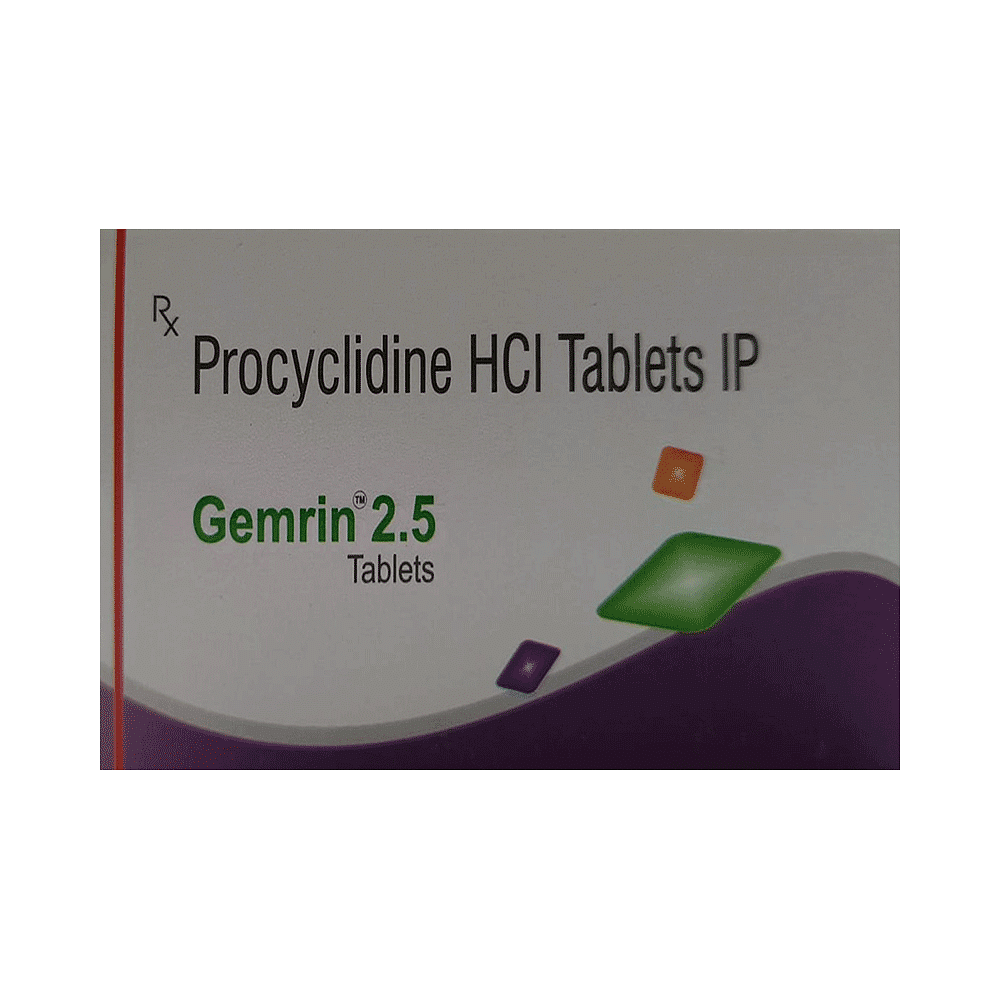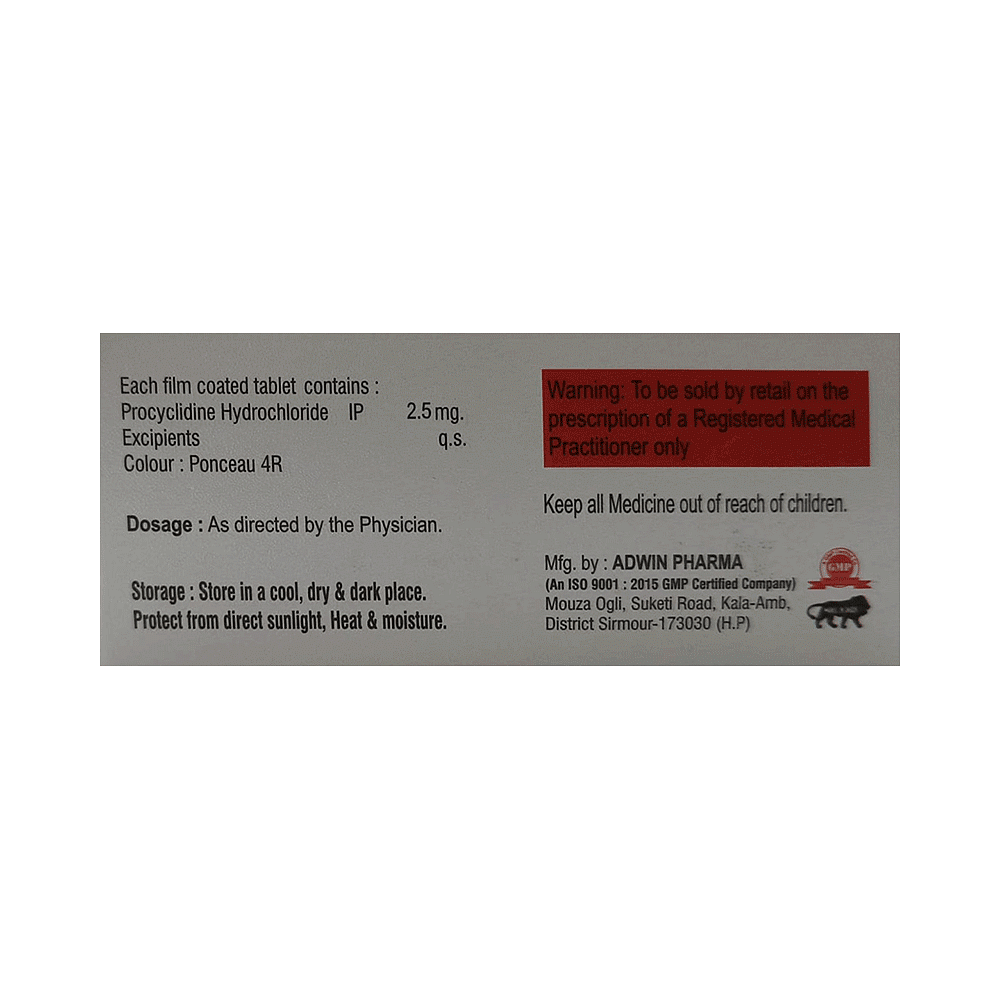

Gemrin 2.5 Tablet
Manufacturer
Aeras Pharma
Salt Composition
Procyclidine (2.5mg)
Key Information
Short Description
Gemrin 2.5 Tablet is a prescription medicine used in the treatment of Parkinson's disease and drug-induced abnormal movements. It helps by improving muscle control and reducing muscle stiffness.
Dosage Form
Tablet
Introduction
Gemrin 2.5 Tablet should be taken with food to reduce side effects. It should be taken at the same time each day to maintain a consistent level in the body. Follow your doctor's dosage instructions and complete the full course of treatment. Common side effects include pupil dilation, blurred vision, lightheadedness, nausea, vomiting, epigastric pain, and constipation. It may cause dizziness, so avoid driving or activities requiring mental focus. Dry mouth and dry eyes may occur; maintain good oral hygiene and avoid contact lenses. Inform your doctor if you have glaucoma or trouble passing urine. Consult your doctor if you have heart, liver, or kidney issues, or if you are pregnant or breastfeeding.
Directions for Use
Take this medicine in the dose and duration as advised by your doctor. Swallow it whole with food. Do not chew, crush, or break it.
Safety Information
Side Effects
Dry mouth Dry eyes Dizziness Sleepiness
Alcohol Warning
Gemrin 2.5 Tablet may cause excessive drowsiness with alcohol.
Breastfeeding Warning
Gemrin 2.5 Tablet should be used with caution during breastfeeding. Breastfeeding should be held until the treatment is completed and the drug is eliminated from the body.
Pregnancy Warning
Gemrin 2.5 Tablet may be unsafe to use during pregnancy. Consult your doctor to weigh the benefits and potential risks.
How it works
Gemrin 2.5 Tablet is a muscle relaxing medication. It works by decreasing the activity of excess acetylcholine in the brain, improving muscle control and reducing stiffness. It helps patients with Parkinson's disease and treats movement disorders caused by certain drugs.
Quick Tips
Helps treat Parkinson's disease and drug-induced abnormal movements. Dry mouth may occur; frequent mouth rinses, good oral hygiene, increased water intake, and sugarless candy may help. Avoid wearing contact lenses if you experience dry eyes. May cause dizziness and sleepiness; avoid driving or activities requiring concentration. Inform your doctor if you have glaucoma or trouble passing urine. Do not stop taking without consulting your doctor. Regular monitoring of blood pressure, intraocular pressure, kidney function, liver function, and cardiac function may be required.


